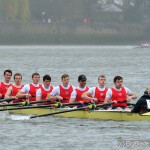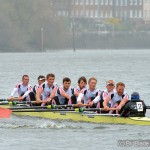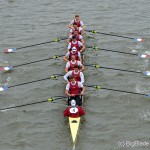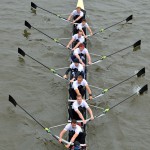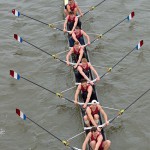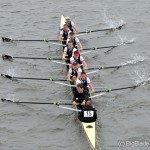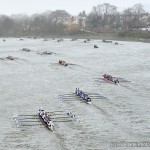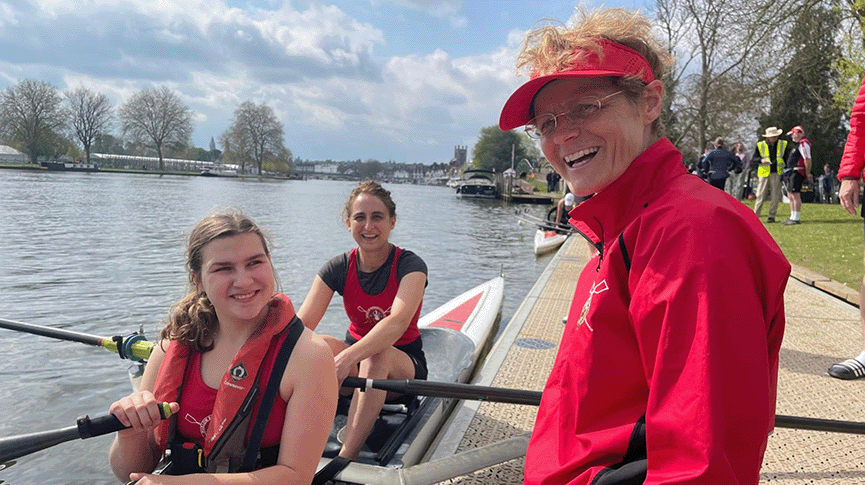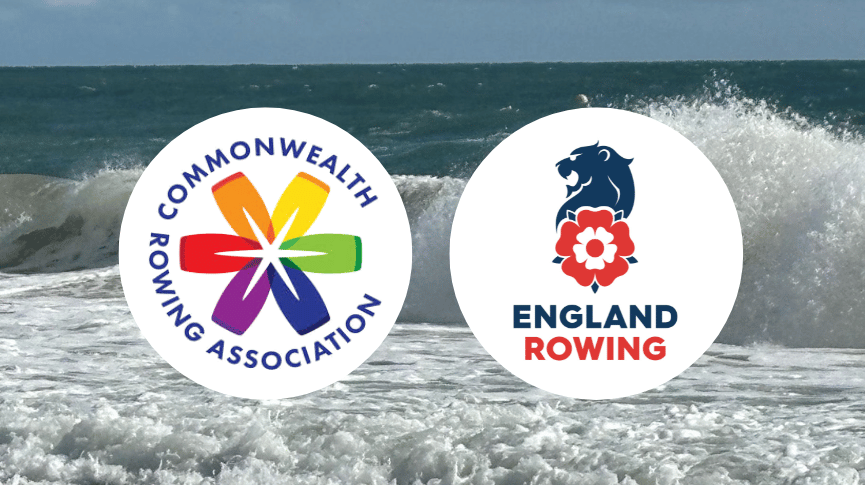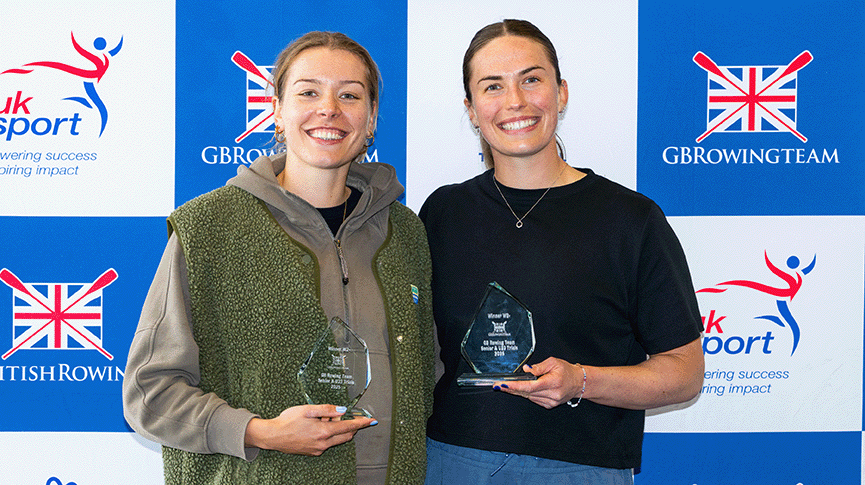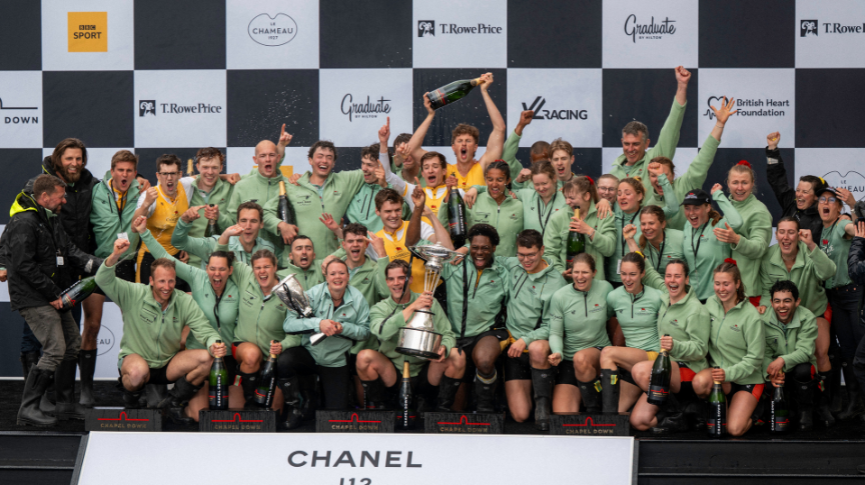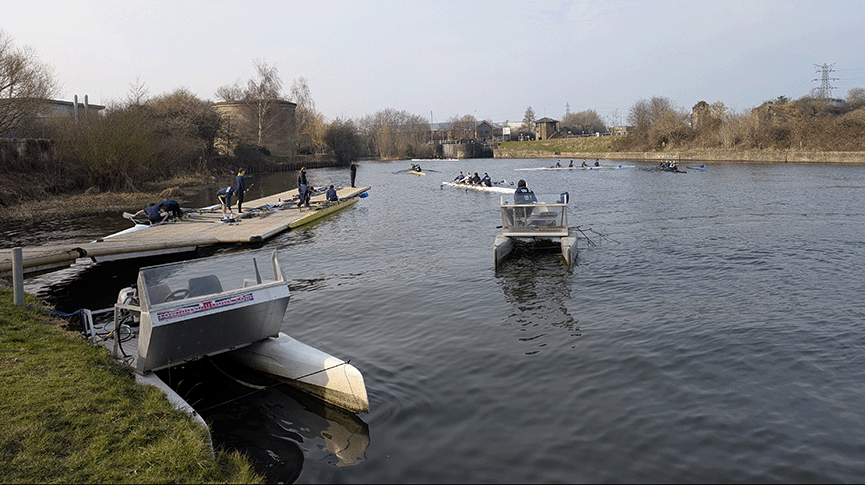Head of the River success
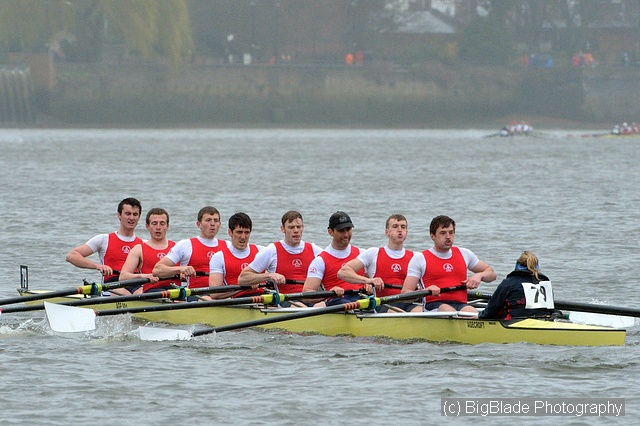
It was third time lucky for the Head of the River Race on Sunday as 327 crews made it safely from Mortlake to Putney, defying a terrible weather forecast which did not quite come to pass. The Head was cancelled two years ago because of freezing temperatures and aborted mid-race last year because of high winds and rough water.
This time around the wind was again strong and steady rain made marshalling uncomfortable but forecast gusts of up to 50mph did not materialise, allowing Leander Club to regain the crown they lost last year to Molesey BC.
“I couldn’t imagine cancelling for the third time in a row,” said Honorary Secretary Andrew Ruddle. “Had the gusty wind been from a different direction or earlier in the day we would have been in trouble but the wind came from the south-west and the worst of it hit after the end of the race.”
Leander, whose crew featured five world champions including Olympic champ Alex Gregory, went off second with a large gap on Molesey ahead of them but covered the course 16 seconds faster in a time of 17:03.04.
Cox Phelan Hill was celebrating for the second time this month, having steered a Great Britain squad composite crew to victory in the Women’s Eights Head of the River a fortnight earlier. He achieved the double for the second time, having first achieved it in 2011, and still made it home in time for the end of his son’s third birthday party.
“It’s massively important for us – probably third only for me behind the World Champs and the Lucerne World Cup each year,” said Hill.
“It was a really good crew – I think one of the best we’ve had. It’s not that the personnel was better but it just gelled from the beginning; there was real harmony.”
Callum McBrierty stepped into the crew when double Olympic champion Pete Reed pulled out with a back problem on the eve of the race. Leander placed three crews in the top six and also won the lightweight pennant.
Molesey’s top crew featured two world champions in Moe Sbihi and George Nash but injuries and illness saw them forced to bring in some last-minute substitutes including Dutch squad member Olivier Siegelaar.
“It’s about the only time we get to go back to our clubs. It will be nice to go back to Caversham [the GB squad training base], where I get changed next to Moe each day, and talk about it,” added Hill, who coxed the GB eight to a second successive world title last summer.
“For many of us it was our last opportunity to win it. It doesn’t fit into the calendar in Olympic year and quite a few of us might retire after 2016.”
Oxford Brookes’ top two crews both finished in the top four overall, with one second between them. The second eight was the fastest University crew – 12 seconds ahead of Newcastle – as the Brookes top boat contained some non-students.
Thames Rowing Club finished ninth overall and won the Vernon Trophy – awarded to the fastest club crew from the Tideway – for the first time since 1961. The club also won pennants in Novice and Intermediate 3, both of which were split into separate Academic and Club categories for the first time.
Agecroft RC from Manchester won the Jackson Trophy as the fastest club not based on the Thames or its tributaries. They were 30th overall and seven seconds faster than Bedford’s Star Club, who won the last two such trophies to be awarded.
As the Agecroft crew were boating from University of London, coach Denis O’Neill was able to ring them with the result while they were still making their way back from Putney.
“We’re really pleased: we set ourselves a target and achieved it,” said O’Neill, who was also celebrating his birthday on Sunday. “The Jackson is not easy to win but it is within reach each year.”
After the problems of the last two years, entry was down from the normal 400-plus, and organisers offered a full refund to crews who did not feel experienced enough to deal with the forecast conditions. However, very few took up the offer.
“If we had had the full quota, it would probably have been made up of Novice and IM3 crews so as an average we had a slightly higher standard of racing,” added Dr Ruddle.
“It helped that we didn’t have quite as many weaker crews given the conditions.”
Contingency plans were in place including a shorter course, finishing in Hammersmith, should the last third of the course prove unrowable.
For full results, click here: www.horr.co.uk/
By Martin Gough
Photos by BigBlade
www.bigblade-photos.com/


